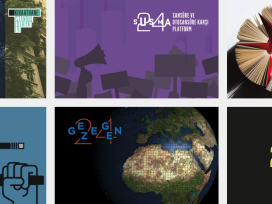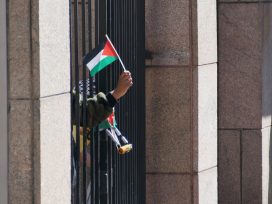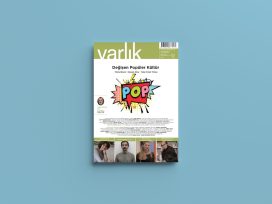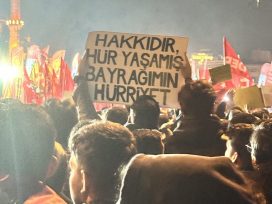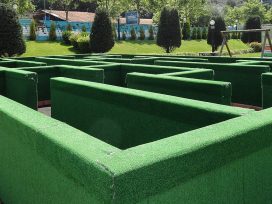While studying at the School of Oriental and African Studies in London, Elif Bereketli was intrigued by fierce political debate about Turkey. After graduation, she returned to Istanbul to see the situation for herself. She found a complex society beyond the hardliners whose views often inform foreign perceptions.
“Turkey does not consist of seculars who can’t stand the idea of living together with Muslims, and extreme Islamists who believe that anyone who has adopted the democratic programme of secularism should leave the country immediately,” she said.
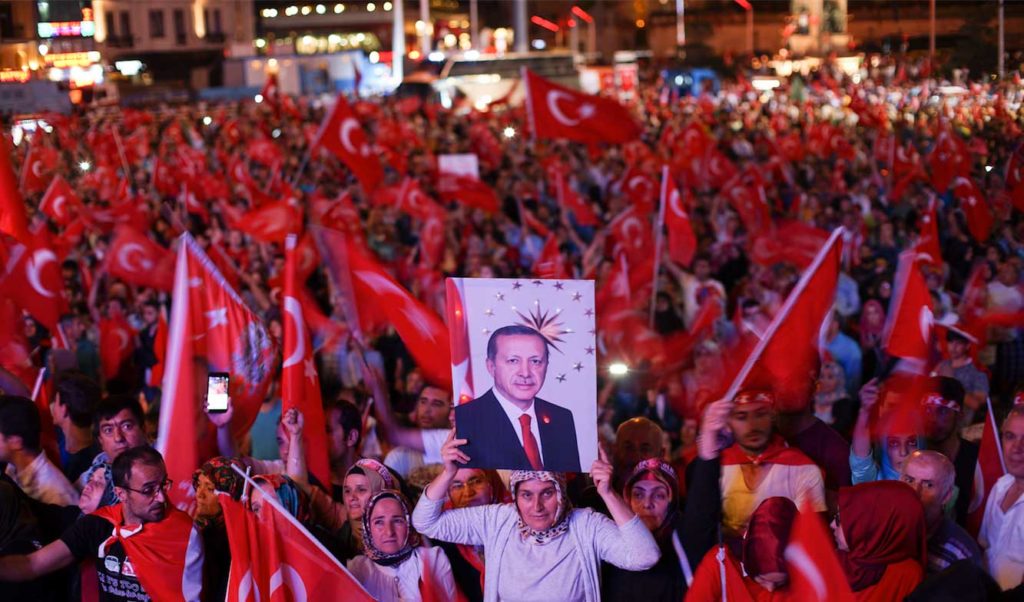
Image: Mstyslav Chernov, 22.07.2016; Source: Wikimedia
Bereketli now works as a journalist for Habertürk TV, where she is expected to be objective in her coverage of the cultural scene. It is a beat fraught with political divisions, with many seeing artists and authors as belonging to specific camps: secularist, conservative, republican and religious.
Turkey has historically been caught in the middle of cultural, political and religious forces. Wedged between the outer borders of the EU and the sectarian regimes of the Middle East, it has also come under historical influences of Islamism and European secularism.
Now, professionals like Bereketli are feeling the squeeze of different values, expectations and world views in society. Discussions about Turkish politics and culture skate on thin ice, requiring people to delicately balance politically opposing views.
Public discourse in Turkey started becoming more restrictive in the early 2000s when political correctness persuaded many it was better to be unheard than misheard. Ideas were suppressed and words carefully chosen as free speech entered a deep freeze.
While rhetorical finessing allowed some to share non-offending views, most people disengaged from public issues and retreated into silence.
Politics was left to opinion leaders at top newspapers as Brussels and Washington steered Turkey’s political direction. Many extreme leftists and right-wing nationalists were jailed to quell dissent, either real or perceived. Those who strayed from safe topics in public speeches and writings were locked up; only the moderates existed. During this time, liberalism earned a bad name in Turkey as the vice that clamped down on ideas.
This fake liberal consensus that constricted the country in the name of keeping up with the “civilised world” ended spectacularly with the 2013 Gezi Park uprising. What started as an environmental protest escalated into what Turkish historian Şerif Mardin called “a climate of opinion” as progressives and conservatives clashed over the discourse of purported social agreement. Voices once silenced reached a deafening crescendo as substance returned to public speech.
“As someone who does not believe that values of one group are superior to those of others, I don’t think the so-called polarised political atmosphere here changed my views, at least not on a conscious level,” said Bereketli.
“When I express myself I take caution, remembering that I live with people who think differently and have values different to mine. I don’t swear or put myself in a higher position [when] talking to my subjects. Nor do I claim that people who don’t think like me are ‘evil’. But I don’t think this is about being Turkish or belonging to a certain culture. I think this is a universal notion.”
Between 2008 and 2013, support for secularism and other founding principles of the Turkish republic ran afoul with critics who equated them with extremism. Similarly, Turkish nationalism was classified as a dangerous ideology; to some, even waving the national flag was deemed fascist.
The “squeeze” of political correctness made a mockery of freedom of expression. Supporters of leftist ideas and the principles of Turkey’s founding father, Mustafa Kemal Ataturk, were stigmatised as “ultra-secularist extremists”. Those who demanded an Asian direction were also criticised for views considered out of step with the modern Turkey.
The country was portrayed as consisting of “two big camps” where the only condition for harmony was for seculars and Islamists to keep their true feelings toward each other silent.
However, not everyone feels stranded in this no-man’s-land.
“I don’t see myself as someone balancing his views on political and cultural issues in Turkey,” said Sernur Yassıkaya, an editor at the conservative daily Yeni Şafak.
“I express my thoughts freely through my opinion pieces in the paper and on social media. I don’t see that much of a strict political divide in Turkey. Compared to the 1980s and 1990s, the cultural sphere here is much more free and vibrant.”
Nevertheless, Turkey has become the world’s biggest jailer of journalists, with nearly one third of the global total, according to a December 2016 report by the Committee to Protect Journalists.
Between August 2014 and March 2016, 1,845 people were prosecuted for insulting President Recep Tayyip Erdogan. In addition to anti-state charges, private citizens are flooding courts with defamation suits. In separate cases, Turkish pianist Fazil Say and the national NGO Atheism Association were both prosecuted for “insulting religious values”, while last year a report by the Turkish Journalists Union found seven journalists had been convicted for defamation and five others subjected to other court action.
For a long time, the golden rule of “think before you speak” has been in place in Turkey. People must consider the implications of their words from different geopolitical and world-historical contexts. People must always balance what they say with appropriate counterweights. Catch yourself sounding too appreciative of the Western world, for example, and you might end up adding similarly appreciative statements about the East.
Saying something as ordinary as “Istanbul stinks the way Eastern cities do” can cast you as an outsider and cultural elitist. In a video posted to Twitter on New Year’s Eve last year, Turkish fashion designer Barbaros Şansal infamously raised a glass to his country “which is now in deep shit” and voiced his happiness at being away from it. Şansal, who was in Cyprus when he made the video, was confronted by a mob upon returning to Istanbul and eventually convicted for inciting hatred on social media.
In the 1932 novel Yaban (The Strange), a classic of early republican fiction, Turkish author Yakup Kadri Karaosmanoğlu tells a similar if antiquated story of conflict. A Westernised intellectual from the capital Ankara visits eastern Anatolia where his modernising ideals clash with villagers’ harsh religious fundamentalism.
Conservative literature, too, has portrayed the situation through pious characters from rural parts of the country, who struggle to fit in and express themselves when they move to secular metropolises. Characters in both genres try to fit in to the expectations of those with different views, failing to satisfy their expectations.
Despite the post-putsch crackdown, the legacy of Gezi continues among Turks determined for their voices to be heard. Their ideas challenge the traditional view of Turkey as a nation that can only survive through consensus.
“It is absurd to analyse Turkey as if 50% of people here belong to this one big group and the rest belong to another big group,” Bereketli said.
“There are too many other frequencies and dynamics in the country. Exceptions to that purported ideological divide make up the majority of the country, not the minority.”
